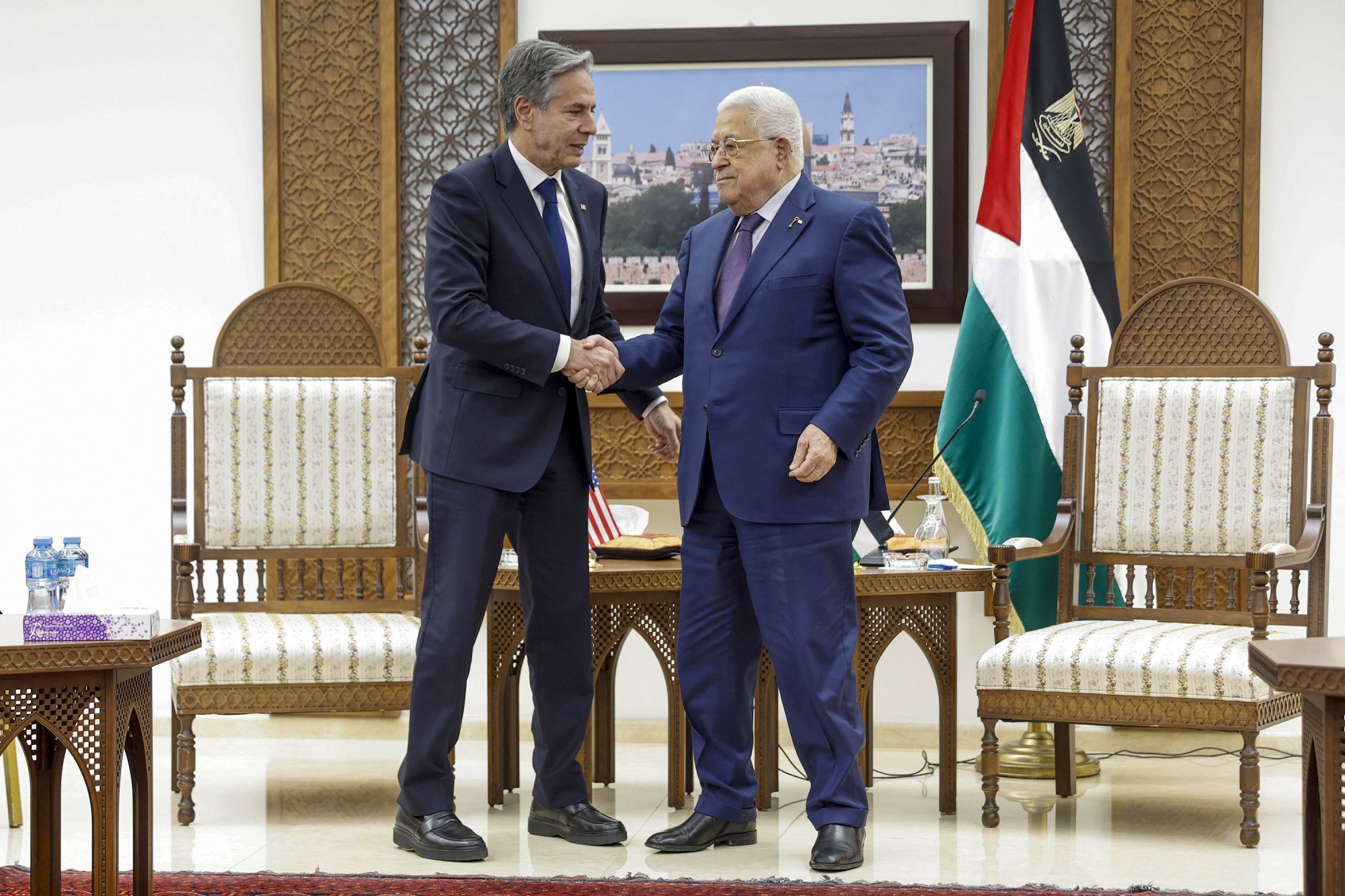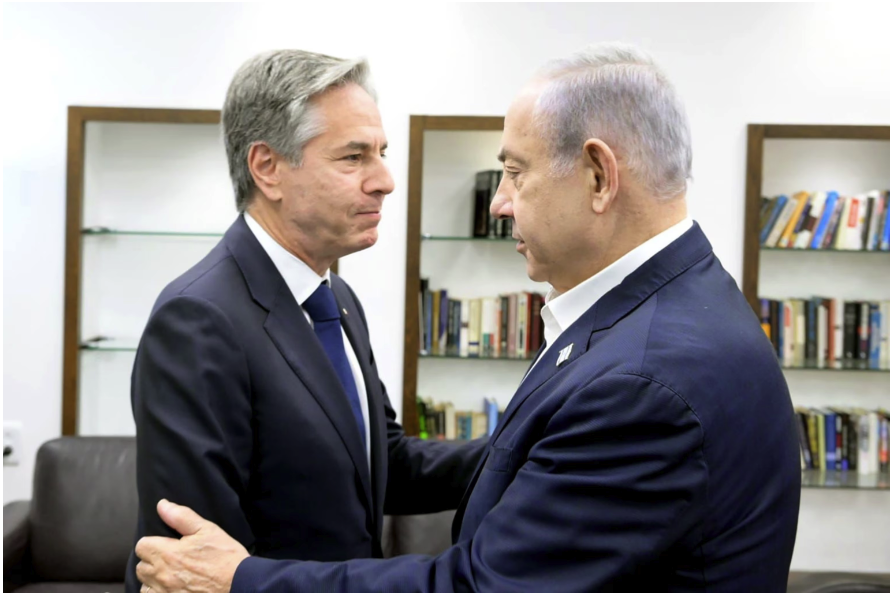"Mediator" may or may not fully describe the US role here because they also have some skin in the game in the form of some US citizens that were/are held hostage by Hamas and one of which (a 4-year old) has since been released recently. (The promised release of two others has been delayed by Hamas, thus far. N.B. there were two other US hostages that were released in a 'pilot' deal on Oct 23, but those are different persons.)
But anyhow, both the US and Israel have said that the US has been making requests (or putting some pressure if you want to be less charitable) for Israel to allow more aid in on various occasions. E.g. on Nov 17:
"Yesterday evening, the War Cabinet responded to a special request by the United States to provide two fuel tankers per day for the sewage purifying facilities in the Gaza Strip that are facing collapse without electricity and the ability to manage the water and sewage systems that UNRWA manages," Israeli National Security Council Director Tzachi Hanegbi told reporters Friday in Tel Aviv.
Or in a Nov 20 US statement:
it is the United States – not any other country – that was able to negotiate an agreement to begin delivering humanitarian assistance in. It was the United States that was able to push for and achieve humanitarian pauses so civilians could move around Gaza more safely than they could before. It is the United States that’s the largest humanitarian donor to the Palestinian people.
And not strictly about the hostage situation, but according to the Times of Israel, the US has been pushing for Israel to reopen the Kerem Shalom crossing because the amount of trucks passing through Rafah is insufficient in the long run (according to the unnamed US officials cited there). OTOH, State Department spokesman Mathew Miller denied that the US takes that position, but did say that they saw an "issue with screening" in the complicated route that trucks have to take first to Israel for an inspection, and then back to Egypt before crossing to Gaza at Rafah. So, anyhow, the US is somewhat pushy for simplifying procedures that would allow more aid.
As for the US pressure on Hamas that was generally via Doha:
The talks — with messages being routed through Doha or Cairo into Gaza — veered into highly technical details, and proposals flew back and forth. The U.S. repeatedly pushed Hamas, with Doha as the intermediary, to provide identifying information for the women and children being held. The militant group continued to refuse.
By Nov. 12, Biden had had enough.
He called Qatar’s ruling emir, Sheikh Tamim bin Hamad Al Thani, and demanded specifics from Hamas. For any agreement to go through, Biden insisted, the U.S. needed clear identifications for the estimated 50 hostages who would be freed — ages, gender, where they were from. Otherwise, the deal would not go through.
Shortly after that call, Hamas produced the information the U.S. had sought. Biden called Netanyahu on Nov. 14 and urged the prime minister to take the deal. Netanyahu agreed to move forward. In meetings with McGurk, Netanyahu urged the U.S. to press the Qataris to nail down the final terms.
Likewise CNN relates US' complicated role starting back in October:
On October 23, the White House had successfully secured the release of two American citizens from Gaza – Natalie and Judith Raanan. [...] That day would serve as proof to Biden’s top national security officials that the White House had successfully established a means of communicating and negotiating with Hamas via Qatar. And it triggered what would ultimately become the weeks-long effort to secure the release of a larger group of hostages. [...]
In multiple phone calls in October, Biden impressed upon Netanyahu that there was a path for a large group of hostages to be released. On October 24, Hamas appeared to agree to the parameters of a deal to release women and children hostages. American and Israeli officials furiously deliberated whether Israel should delay its ground invasion.
Ultimately, Israel wasn’t convinced. At this point, they still had no proof of life of any of the hostages that Hamas claimed to have, and they also didn’t buy Hamas’ claim that they couldn’t determine the identities of the hostages until there was a pause in fighting.
Israel began its ground invasion on October 27.
In the weeks that followed, the US, Israel and Qatar went back and forth with Hamas, negotiating with the group about every detail of a possible deal: the timeframe, number of hostages, safe passage corridors and surveillance.
Blinken returned to Israel in early November to press the Israeli government to accept “humanitarian pauses,” something that the US argued would advance progress on the hostages. Although there was an agreement in principle after Blinken met with Netanyahu and the war cabinet, the Israeli prime minister publicly rejected the idea just hours after that meeting. It took days of pressure from the US for the Israeli government to institute and acknowledge “tactical pauses.”
IDK if "The Cradle" thought to apply any particular definition there or that was
just a quickly written piece (the web site is pretty obscure in terms of authorship
and ownership), but a US Navy thesis claims that in IR (and especially in civil wars) mediators are more successful
when they come with their own agenda--the so-called "directive strategies".
Directive strategies are identified as the “strategies by which the mediator
actively promotes a specific solution or attempts to pressure or manipulate
the parties directly into ending the dispute.” They involve such tactics as
making specific proposals, pressing the parties to make concessions,
suggesting particular settlements, emphasizing the costs of disagreement,
threatening to withdraw, arguing each party’s case to the other, and trying
to change the parties’ expectations. (Bercovitch & Wells, 1993, p. 6)
In a directive strategy, the mediator uses its power to direct the warring sides in
the negotiation. Previous research suggests directive strategies are the most effective
form of mediation (Bercovitch & Lee, 2003; Gartner, 2014a). [...]
Some mediation techniques
may not be exclusive to one category and may span across different strategies. For
example, a mediator might use shuttle diplomacy to narrow the communications gap
between the two sides—a communications-facilitation strategy—while also attempting to
persuade one side to accept an offer—an aspect of a directive strategy. This demonstrates
how more intense mediation strategies may interact with those of lesser intensity.
Another book by a US political scientist also says
While it is commonly assumed that mediators should be unbiased, there are a number of benefits that may arise from the inclusion of a mediator who actually favors one of the disputing parties. One benefit is that biased third parties try harder. [... B]iased third parties might be more willing than those without any skin in the game to offer side payments or to hold the parties accountable for any intransigence.

